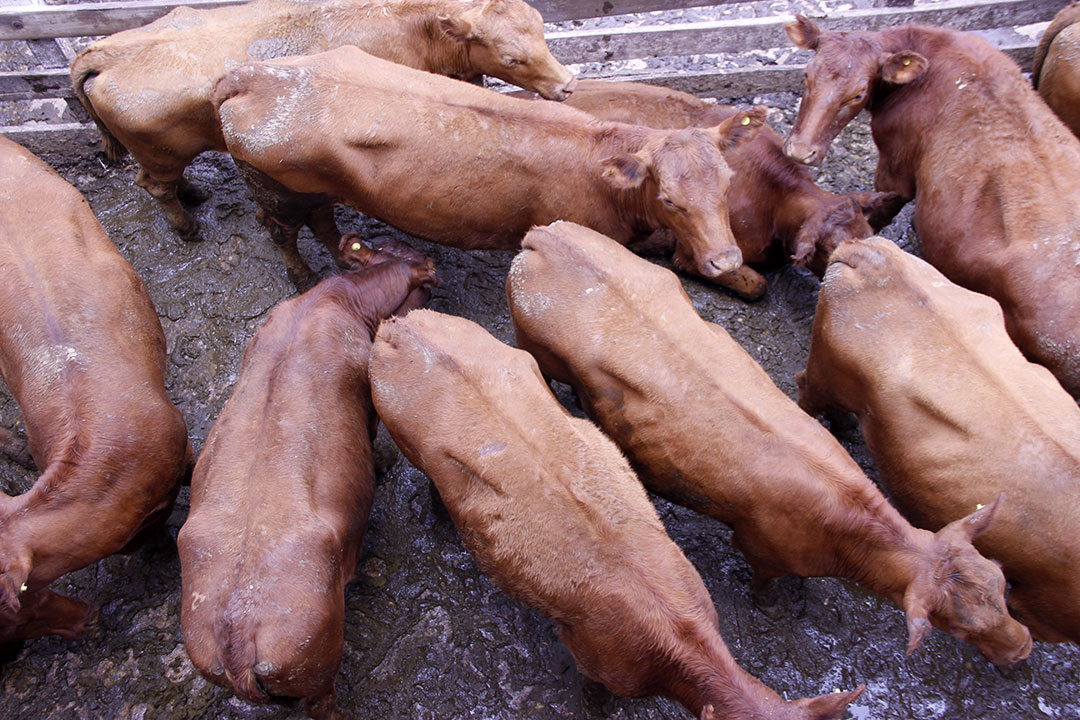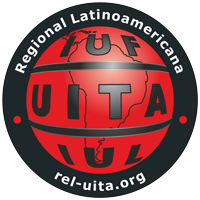Beef concentrate
The Brazilian food industry giant surprised all and sundry when it announced on August 28 that it was purchasing 16 meatpacking plants from its competitor Marfrig in Latin America. Three of those plants are in Uruguay.
Amalia Antúnez
01 | 09 | 2023

Photo: Gerardo Iglesias
The news upset local producers and business operators and raised concerns in the Federation of Meat and Related Industry Workers of Uruguay (FOICA), an IUF affiliate.
If the acquisition goes through, Minerva will control a total of seven meatpacking plants in the country: Canelones, PUL, BPU, La Caballada, Establecimiento Colonia, and Inaler.
FOICA president Martín Cardozo told La Rel that the announcement came as a shock.
“We were surprised by the news, especially since on August 16 the Commission for the Promotion and Defense of Competition had confirmed Minerva’s acquisition of the BPU meatpacking plant, following months of examination; and just days later this new transaction emerges,” he said.
“There is some concern and uncertainty among workers. This type of concentration is known to involve in many cases what companies call labor restructuring, a euphemism for layoffs or plant shutdowns,” the union leader noted.
As for labor relations, Cardozo pointed out that Minerva Foods always tries to impose its conditions, and while it complies with regulations in terms of wage levels and health and safety conditions at its plants, it usually takes a tough stance in collective bargaining.
“Since its arrival in Uruguay, the company has run a rotational system of early employee leaves and temporary layoffs among its meatpacking plants,” he explained referring to the practice whereby Minerva operates only some facilities at a time, with “some plants paralyzed for several months,” and employees in those plants forced to take early annual leave and then placed under the state unemployment scheme. This allows it, once activities are resumed in those plants, “to take advantage of the [workers’] need to return to work to set the rules for wages and work hours, and even block union demands.”
Producer associations, for their part, raised the alarm and called an urgent meeting with Uruguayan President Luis Lacalle Pou, who received their representatives on Tuesday, August 29, to discuss the matter.
At a press conference, Patricio Cortabarría, president of the Uruguayan Rural Association, the group that gathers the country’s livestock producers, said the problem they see is concentration. Minerva now owns seven plants in the country and controls more than 44 percent of local abattoir production.
After producers met with the president, it was reported that before it can be approved the transaction would be examined by the Ministry of Economy and Finance’s Commission for the Promotion and Defense of Competition.
If it is confirmed, the operation will be carried out through Minerva’s subsidiary, Athn Foods, which will purchase a share in the Uruguayan branches, indirectly acquiring three of the four meatpacking plants that Marfrig owns in Uruguay.
This coup by Minerva inevitably brings to mind what happened some years ago in the brewery industry with AmBev, another Brazilian corporation, which has since become the giant AB InBev.
That multinational corporation disembarked in Uruguay in 2002, purchasing the three breweries located in the departments of Montevideo, Minas, and Paysandú. Once it had secured a beer production monopoly, AmBev immediately announced it was shutting down the Paysandú brewery, where the Norteña brand beer was made. The workers were merely numbers in the capitalist machinery and sacrificed to a growth logic based on demolishing plants.”
“This scenario is very recent and as a federation we are assessing it cautiously,” Cardozo said.
“We know that in this same operation Minerva bought another 13 units in the region; now more than ever we need to contact other labor organizations in the sector across Latin America to share information and outline common strategies for action. We trust that Rel UITA (IUF Latin America) will help us with that,” he concluded.
The arrival of Minerva Foods in Uruguay in 2011 was part of a regional expansion strategy aimed at positioning the Brazilian corporation as a key player in global food distribution chains.
With this new operation, in which it acquires 11 plants in Brazil, 3 in Uruguay, 1 in Argentina, and 1 in Chile, the company will increase its slaughtering capacity by 44 percent, making it the company with the largest number of plants certified for exporting to China.
